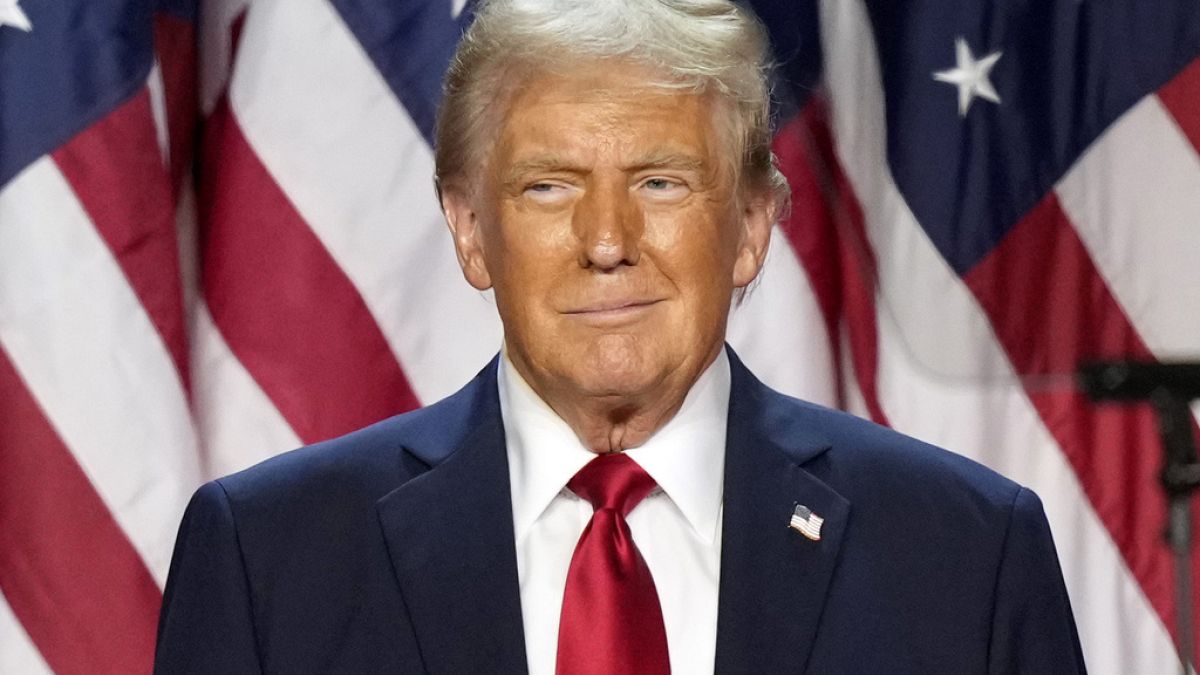Trump’s economic agenda: Why is the Irish economy in danger?

US trade tariffs are “one of the biggest near-term risks to the Irish and European economies”, according to experts.
As soon as Donald Trump was declared the winner of the 2024 US Presidential election, immediate concerns took the place of future speculations about how the President Elect’s promises were going to shape the economy in Europe and especially in Ireland.
Among offering a raft of protectionist economic policies, two of Trump’s key promises about the US economy mean particularly stark times for Ireland and the wider EU. One of them is a blanket 10-20% tariff on imports and a lowering of corporation tax (currently 21%). The rate would be 15% for companies that produce domestically in the US.
With around 1,000 US companies contributing to the Irish GDP, there are fears that the more favourable tax conditions and harsh trade tariffs could turn some of the foreign direct investment away and even put jobs on the line.
Chief economist at the Institute of European Affairs Dan O’Brien went as far as calling recently the potential tariff on all goods shipped to the US the “biggest near-term risk” to the Irish (and European) economy, in a LinkedIn post before the elections.
A looming trade war comes at a time when the eurozone is already battling sluggish economic growth that could turn into recession, with Germany particularly exposed to being hit hard by tariffs on European cars.
Why the Irish economy is so exposed to the US economic agenda?
US companies are heavily involved in Ireland’s economic performance, operating in sectors such as chemicals, IT and financial services.
In 2024, there were 970 US companies in the country, employing about 210,000 people and spending more than €41bn in the local economy annually, according to the American Chamber of Commerce Ireland.
Most of the top 10 US tech companies, including Microsoft, Meta, Amazon, Google (Alphabet) and Apple, are present in Ireland, having swelled the country’s digital economy to $50bn (€46.66bn), accounting for 13% of GDP.
After Brexit, Dublin stepped up to be the most popular place for US companies to set up EU headquarters, due to its favourable corporation tax environment (the rate is currently 12.5% or 15% for businesses with revenues of more than €750m), English-speaking workforce and access to a market of 500 million people in the EU.
The Information and Communications Technology sector, in particular, generated a tremendous growth of Ireland’s economy, new job opportunities, investment and innovation.
Now economists say that Trump’s planned trade tariffs and corporation tax cuts could change the tide.
Donald Trump had hinted that he would lower corporation taxes, in some cases to 15%, if he gained office, once the the Trump Tax Cuts and Jobs Act, a result of his previous presidency, expired in 2025.
The President-Elect promises the most favourable corporation tax rates for the companies that keep or relocate their production to the US.
Trump’s plans to cut taxes may face some obstacles if Congress is not entirely ruled by the Republicans. Even though those plans to cut taxes are far from being certain, fears are already mounting in Ireland the they could potentially erode the competitive edge of the country’s tax system for US companies.
Another looming threat is if Trump imposes trade tariffs, which can be done by a presidential order.
The President-Elect talked about trade tariffs, up to 20% on goods from other countries and 60% on Chinese ones. (He also mentioned a 200% tax on imported cars that would potentially drag down the already struggling European car industry.)
Trade tariffs on US imports would make those goods more expensive for Americans, necessarily leading to customers favouring local alternatives, therefore foreign products could lose market share.
Chief economist O’Brien highlighted that blanket tariffs on imported goods would particularly hit Ireland hard, as he talked about a transatlantic trade shock being “now likely”, in a social media post on X.
“The promised tariffs will have a trade destruction effect, with a knock-on on impact for jobs and profit tax revenues,” said O’Brien.
Irish goods exports to the US last year were worth €54bn, accounting for one-eighth of the EU’s total exports to America.
However, there is no expected exodus of US companies in Ireland for now, but there is a fear of high uncertainty and a period of turbulence, which could be further complicated by potential retaliatory measures by the European Commission, should Trump carry out his promises of across-the-board tariffs on imported goods.
Related
ForexLive European FX news wrap: Euro stays buoyed, markets wait…
Headlines:Markets:EUR leads, AUD lags on the dayEuropean equities lower; S&P 500 futures up 0.1%US 10-year yields down 2.7 bps to 4.255%Gold up 0.4% to $2,9
European shares fall as tariff uncertainties weigh; US jobs data…
(Reuters) - European shares fell on Friday as frequent shifts in U.S. trade policy throughout the week resulted in risk aversion, while focus remained on th
US economy added 151,000 new jobs in February; Euro on…
US jobs report releasedNEWSFLASH: Hiring across the US economy picked up slightly at the start of Donald Trump’s second term in office.The US economy added 15












